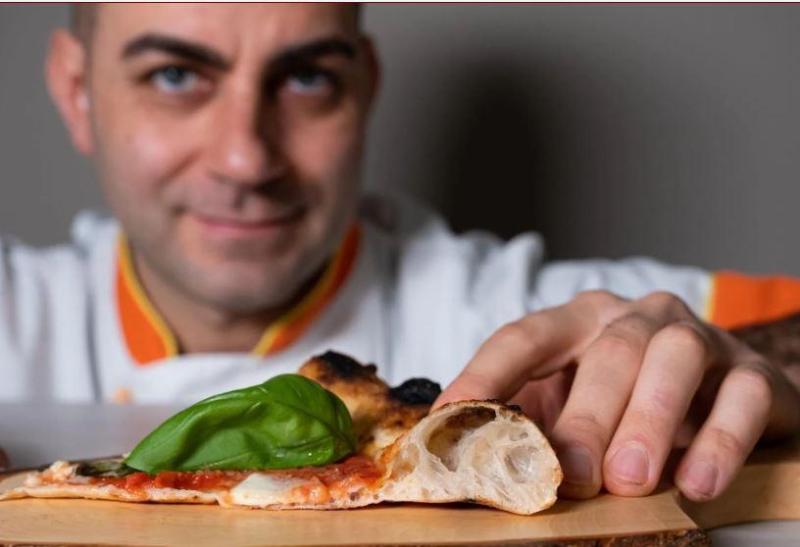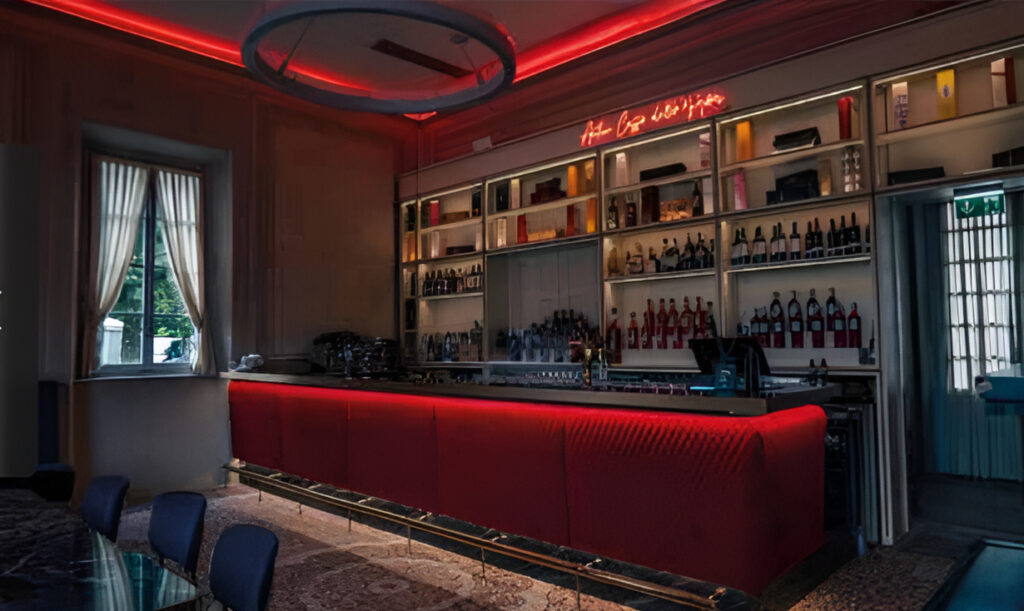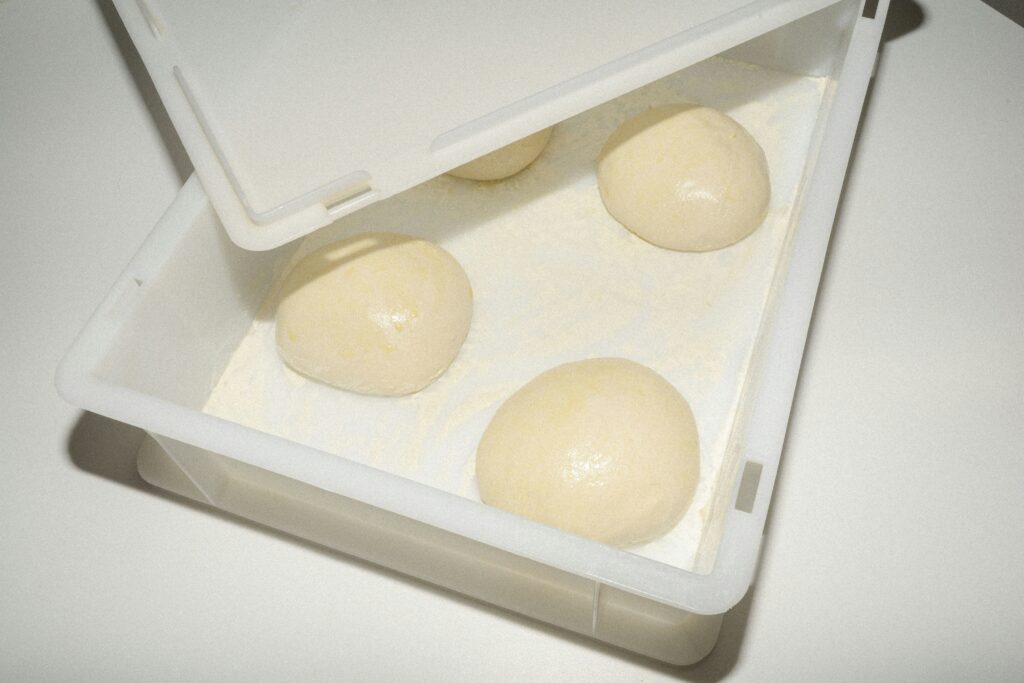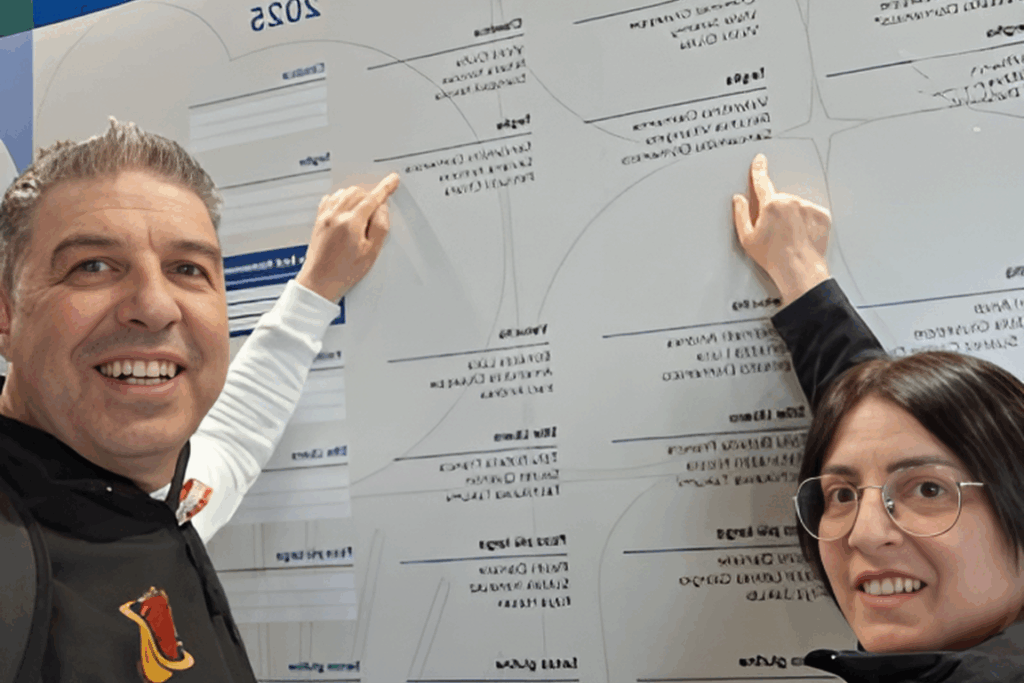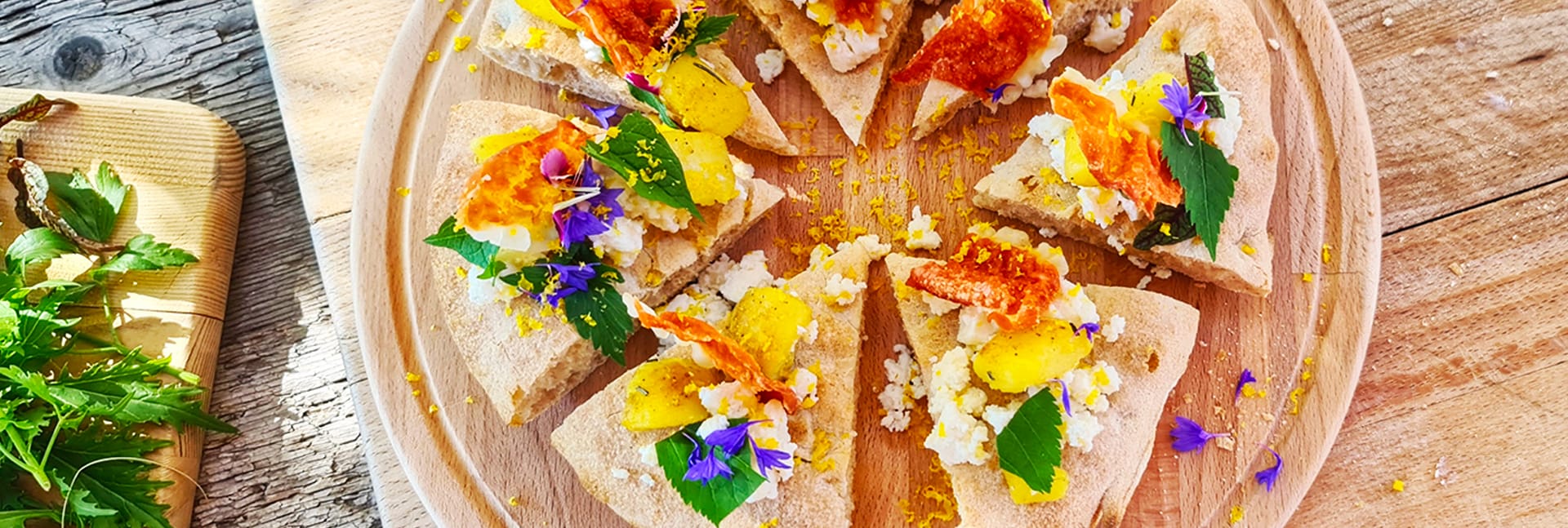
The house of Andrea Irsara is located in a small and delightful mountain hotel in the heart of Val Badia. The Gran Ander is a place where hospitality and excellent cuisine harmoniously blend together, a destination of taste worth knowing. The backdrop of the mountains, a wood-burning oven, and an exceptional guest such as Denis Lovatel completed the picture of an enjoyable and educational experience. As usual, pizza and cuisine are the protagonists.
This pizza is conceived as a typical Ladin dish with eggs, speck, and potatoes. To the potatoes – which come from the home garden – are added a layer of speck, eggs from the village hens and a few wild herbs picked early in the morning; to complete the dish, also some amazing fresh ricotta is added. Lovatel says: “The pizza was prepared with a type 1 flour dough, biga and more than 70% hydration. A small amount of wheat flour was then added and, finally, to balance the fatty part, a lovage-scented oil was used, which is naturally found in the nearby woods.
But speaking of herbs, is it easy to recognize them and distinguish the good ones from the dangerous ones? Andrea Irsara explains: “for us, herbs are a family tradition that has reached the third generation, handed down from my grandmother to my father. In addition, we are lucky to have an aunt and a friend in town who are specialized and help us to distinguish one herb from another. You can find many of them, but you have to start with two or three at the most, perhaps focusing on them for an entire summer to be sure that the ones you are going to use are good and safe. During the season, Auntie leaves at 5 a.m. and by 7 a.m. when we start, she’s already here.”
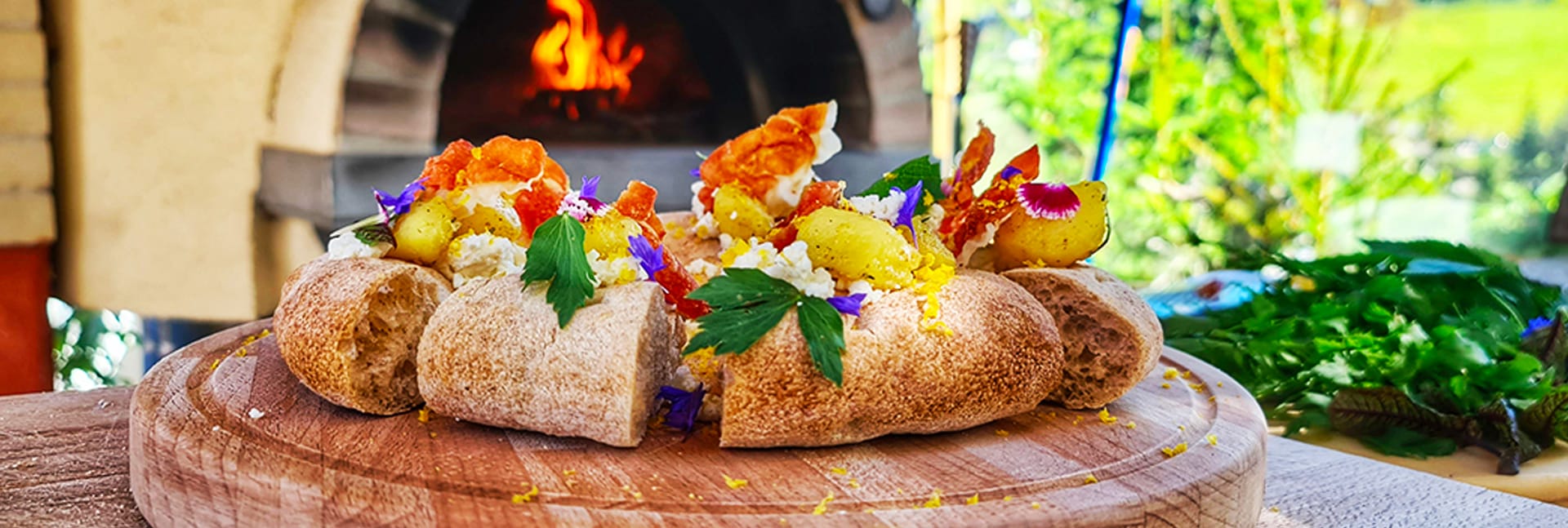
Irsara continues: “For us, herbs are fundamental in the kitchen. In summer we work a lot, and we treasure them, because in winter everything is covered by snow. That’s why we ferment, dry, and try to carefully use everything that nature gives us in the warm season. That’s what our elders did in their time, when there was no money and people were used to not throwing anything away: we’re talking about people of peasant extraction who worked in the fields all day and in the evening ate what was available.” Also Denis is a man of the mountains; he lives there, and he loves and respects those places. “I would like to transmit awareness to the new generations, explain what sustainability really is without taking it for granted as a fashionable term. And I want to communicate through what I do, my pizza. From my point of view, people must feel part of sustainability. We can also try to communicate it but not as if it were a fashionable thing, for in that case the risk is that after leaving the restaurant, people will forget about it.”
Irsara remembers when, twenty years ago, he was even laughed at by his colleagues for certain choices strictly linked to the territory: “I feel these things inside, I grew up with them. My grandmother was a cook, she was incredibly good at making sweets: she lived through two wars during which there was nothing to eat. She told me that potato peels were preserved and then burned to make coffee. Now having a kilo of sugar is normal, but back then you had to measure it with a teaspoon.
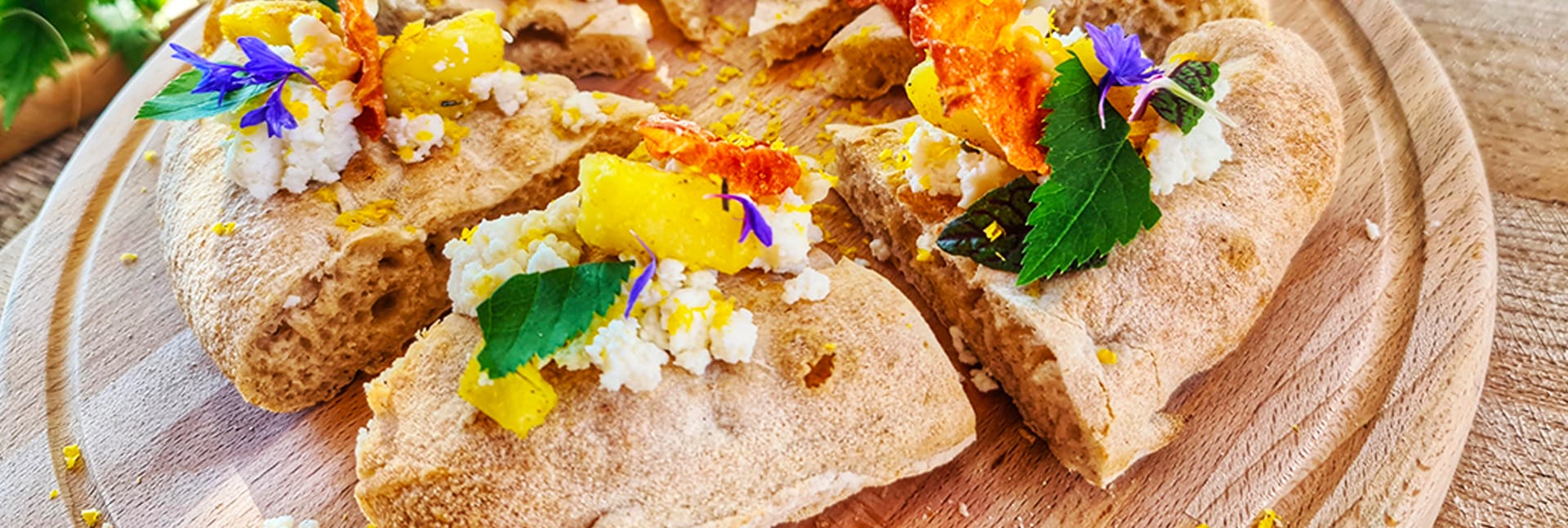
Everything was based on exchange because there was no money. It was a tiring but authentic world: during summer, you worked hard in the fields and during winter you carved and engraved wood. ” That’s why he’s extremely sensitive to the use of a term that often tends to be abused. Regarding the collaboration between pizza makers and chefs, Denis says: “I was the first to set up a project to make the most of the interaction between the two professions, Infusioni.
Like the baker, the pizza maker usually stays behind the scenes: hours and hours spent making dough, perfecting it, and giving it your best and then people would come to the pizzeria to eat in a hurry and then leave. It no longer has to be a place of passage, but a real destination. So also the fusion between cooks and pizza makers represents a living and continuous exchange as well as a learning resource.
And finally, the dough is not a proper dish, but you have to think about the filling while you prepare it, that’s why the pizza maker and the cook need to exchange ideas.” Irsara adds: “Being a chef requires adaptation: you have to know how to be a butcher, a fish seller, a pastry chef and a baker. But you learn all that from people who know how to do it. And that’s where you get the idea that unity is strength.”
